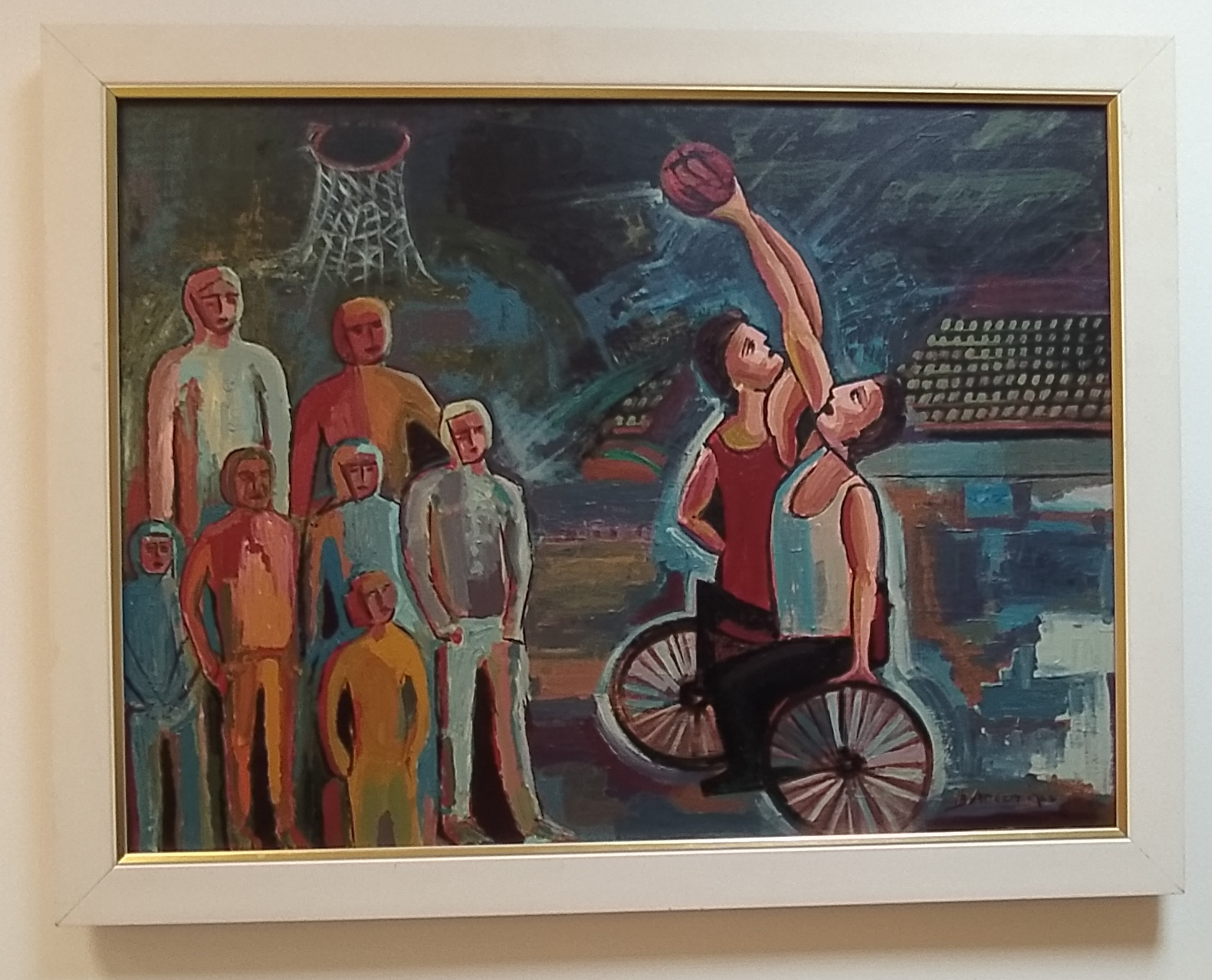MY DISABILITY MADE ME A BETTER PERSON
Author: Pinaka Ourania, GP, 5th Regional Health Authority of Thessaly & Sterea
Originally from a small village in the mountains of Greece, Achilleas is a 65-year-old man who now lives with his wife in a detached house on the outskirts of the centre of a large city. They have a 39-year-old son who lives a four-hour drive away. The number 39 is also significant as it represents the number of years that Achilleas has been paralysed, since a terrible accident that took place two months before the birth of his son. “So, with my son’s birthday, I count my years of disability.”
Αchilleas worked in the mines. On the day of the accident, one side of a gallery in the tunnels collapsed and crushed him. He was 26 years old and had to learn to live with a disability. “The first years were difficult” he explains, “I was living isolated for six years. Locked in the house, away from people. Then, my fellow villagers suggested that I run for ‘president’ of the village. They trusted me. That was my salvation. My life gained meaning again. I left home, socialised with people, and dealt with other problems. All this helped me psychologically.” Since then, Achilleas has served in this civic role for eight years. He has also become involved in other important roles as an elected president of the regional association of people with disabilities and a regular member of the Panhellenic association of people with disabilities. He says: “Things do not change if you do not participate. We must be present everywhere!”
In the course of our conversations, I asked Achilleas about the biggest challenge faced by a person with a mobility disability.
“I think the most important thing is access. It is important to have the conditions to be able to move. This gives you autonomy and independence. Transportation from the house to the sidewalk should be ensured. The sidewalks should be spacious and without obstacles and have ramps with a suitable slope at the end, not only in the city center but also in the districts. All public transport must be accessible. Planes and trains have better accessibility than intercity buses. Furthermore, accessibility must include not only the public buildings but also public assembly buildings such as theaters, banks, cinemas, museums so that everyone can have their needs served.”
There were many difficulties that Achilleas faced that may be amenable to digital/technological solutions. Achilleas complained: “It is not uncommon for me to have to return home because I could not find a parking space in the city centre.” Smart City ideas, such as real-time mapping of the location and status of the disabled parking spaces through a digital platform would do much to answer this problem.
According to Achilleas, to live a good life is to enjoy what other people enjoy: travelling, good food, a show in the theater, a movie in the cinema. He says: “Many times, hotels or restaurants state on the website that they are accessible but ultimately they are not. In these cases, you have to choose expensive solutions in order to be sure of accessibility and this cost cannot be afforded by everyone. Licencing and Legislative specifications and controls should be strict. Also, for these cases, it would be useful to map the really accessible hotels, restaurants, museums and other public assembly buildings.” Achilleas remembers a typical case where he had booked a summer vacation in a hotel where he was assured that the rooms were suitable for people in wheelchairs. Upon arrival, he discovered the room was spacious, but it was impossible to access the toilet in a wheelchair. “That’s why I choose to go to the same places where I know that they meet my basic needs.”
Additionally, Achilleas points out the importance of supported living centres that consider both people with disabilities and their caregivers. These institutions are crucial so that caregivers can leave the person they assist safely for an afternoon or a weekend if needed. In addition to the security and peace of mind offered to the beneficiaries, he explains, these structures should also function as centres of creative employment and not as a storehouse of souls.
Achilleas is pleased at the progress that has been made in the last four decades. To illustrate, he recalls with great emotion, a story that happened to him 20 years ago:
“I was waiting at the bus stop, the bus is coming, the ramp is coming out from inside, but because the bus was parked further from the sidewalk I could not go up to the ramp and so the bus driver had to get off to push the wheelchair. He asked me: ‘Are you alone?’, I answered: ‘Yes’, and then he told me: ‘Who do you think that I am, your personal nurse to raise you?’ Then, when I got on the bus, a passenger looked at me and said: ‘Do you go out alone and get around? Can’t you get someone from your house to help you?’ Τhat was the last time I got on a bus!”
Achilleas concludes that many health conditions too often appear only as “problems” in the sight of public policy and research, as opposed to the very nuanced ways real people in fact experience living with such states: “What I can say for sure is that my disability helped me. It made me more social, I met people I would never know. I dealt with public affairs, I realised the needs of every person, with or without a disability. I learned to help my fellow man with his problems. My disability was and continues to be a school that made me a better person.”
Category

Photo copyright: REDMI NOTE 8T AI QUAD CAMERA

